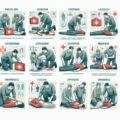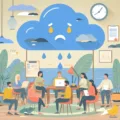Understanding Codependency
Codependency is a relational pattern characterized by looking outward for self-worth and happiness, usually through another person. While supporting loved ones is healthy, codependency crosses the line into enabling unhealthy behaviors. Recognizing some of the common signs can help set healthy boundaries.
Five Signs Your Friend May Be Codependent
- They struggle with having an identity outside of the relationship
- Your friend prioritizes your needs and problems over taking care of themselves
- They have trouble saying no and setting healthy limits with people
- Your friend feels responsible for fixing problems or relieving distress even at high personal cost
- They seek constant validation from others to feel OK
Why Healthy Boundaries Matter
Setting compassionate limits allows space for personal growth. It’s an act of care, not rejection. Remember that we all struggle sometimes. Focus on understanding root causes over judgment.
Five Ways to Establish Healthy Connection
- Affirm your care while maintaining your own needs and limits
- Lead by example in taking care of yourself
- Encourage counseling or support groups if appropriate
- Be consistent in maintaining your boundaries
- Offer specific help when you can, not total responsibility
Frequently Asked Questions
What causes codependency?
Early childhood experiences often contribute to codependent patterns later, like having emotionally unavailable parents. We learn how to connect by observing our early caregivers.
Does codependency affect friendships?
Yes. Codependent people pleasing and poor boundaries can strain platonic relationships. Friends may start to feel burdened.
How do I help my codependent friend?
Lead by example in prioritizing self-care while also validating their worth outside the friendship. Recommend counseling if unhealthy dynamics persist despite your efforts.
What if my friend won’t accept my boundaries?
Reassert your limits clearly and compassionately. Take space if they won’t respect them. You cannot change their behavior, only control your own responses.
Is there hope for healing?
Absolutely. Increasing self-awareness through counseling and reading can help change unhealthy relating over time. There are many excellent resources available.









